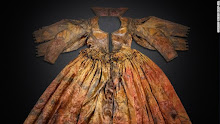My article “Wedding Vows” just published in the fall
issue of SEASON magazine! It shares how Princess Diana’s wedding in
1981 signaled changes in the world of weddings, including the promises a couple
makes during their ceremony. (‘Tis based on excerpts from my book, The End of the Fairy-Tale Bride: For Better or Worse, How Princess Diana Rescued the Great White Wedding.) Enjoy!
Wedding Vows
 The bride’s entrance into the majesty of St.
Paul’s was announced by a fanfare from trumpeters high inside the cathedral’s celebrated
dome. Perhaps they were not only announcing a princess bride, but prophetically
heralding in, for better or worse, a new era! Thirty-five years ago Lady Diana
Spencer’s charismatic appeal as a bride, combined with the grand splendor of
the British monarchy, resurrected the “great white wedding”—helped along with society’s
need for order and tradition, a little Reaganomics, plus a dash of glam and
glitter!
The bride’s entrance into the majesty of St.
Paul’s was announced by a fanfare from trumpeters high inside the cathedral’s celebrated
dome. Perhaps they were not only announcing a princess bride, but prophetically
heralding in, for better or worse, a new era! Thirty-five years ago Lady Diana
Spencer’s charismatic appeal as a bride, combined with the grand splendor of
the British monarchy, resurrected the “great white wedding”—helped along with society’s
need for order and tradition, a little Reaganomics, plus a dash of glam and
glitter!
Or as author Maria McBride-Mellinger described changes
following the royal wedding in 1981:
“After a decade of swinging singles and disco infernos, suddenly
everyone wanted to be married and every bride wanted a gown fit for a queen:
regal and ornate, with a lengthy train, and a jeweled veil. The big white
wedding was back in style and no expense seemed too great.”Signaling another change of the times, the bride
and groom made royal history that day with a break in tradition even before
becoming husband and wife. Removing some outdated words from the Church of
England’s 1662 version of the Book of Common Prayer, as the couple stood before
the archbishop of Canterbury, and witnessed by nearly a million-fold television
audience, the bride’s marriage vows did not include the promise “to obey.”
A London byline in The Washington Post a few days before the wedding reported that the
archbishop of Canterbury revealed “the decision to drop this vow was made very
quickly in his discussion of the service with Charles and Diana and that he
told them, the usual clergyman’s joke. ‘It’s a bad thing to start your marriage
off with a downright lie.’ He told reporters that many couples now omit the
vow, which was a remnant from the Middle Ages, when a wife would pledge ‘to be
bonny and buxom in bed and board.’”
I don’t doubt the archbishop’s knowledge of
history regarding marriage vows including “to love, cherish and obey.” However,
my understanding of the Latin meaning of the word “obey” as used in the old
marriage text is “to hear, to deeply listen”—a promise that would be
beneficial, even essential, to any marriage, no? If that’s the case, my only
complaint with the original marriage vows is that the pledge “to obey” (i.e.,
“to listen”) was in the woman’s declaration but not in the man’s. Is the
promise “to love and cherish” really possible without “deep listening”?
Some wedding “traditions”—royal or otherwise—are indeed
outdated and need tossing aside; others are keepers in their own right. Then there
are those traditions that simply need the wisdom of a woman’s touch! □



















